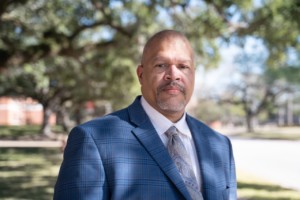There is a popular saying that “the more things change, the more they stay the same.” Scholars and supporters seeking to ensure the continuance of African American Studies programs in America as it approaches its Golden Jubilee celebration surely have a feeling of Deja’ Vu for the following reason. Due to shifting political winds occurring throughout the nation, supporters of African American studies are once again forced to defend the discipline’s utility to the nation. This is the same battle that Carter G. Woodson, the creator of Black History Month, fought over a century ago.
In an effort to encourage all American citizens and educational institutions to embrace the study of African Americans and their essential contributions to America’s founding and development, Carter G. Woodson presented what appeared on the surface to be a peculiar question. Woodson’s long-forgotten question went as follows.
“Why not destroy the Negro if he has contributed nothing to society.”
Those familiar with Woodson’s esteemed body of research and writings, such as his classic work The Mis-Education of the Negro, must have been taken aback by his incisive inquiry, as it seemed to contradict a lifetime of work focused on Black life. Woodson exacerbated supporters’ angst by insinuating that if the Negro had not contributed anything to America or any preceding civilization, he should be killed. Of course, Woodson’s question was a facetious one.
A close examination of Woodson’s query reveals his true motives in presenting such a question to his American audience. Woodson’s question was aimed far away from encouraging whites to kill African Americans and intended to offer a reasonable explanation for whites’ uncivilized behavior toward a population that famed social critic James Baldwin called their Black countrymen. In his great speech What to the Slave is the Fourth of July?, Frederick Douglass stated that the everyday practices of white southerners that included the lynching of Black men, women, and children, the rape of Black women, and the burning of Blacks at the stake would shame a nation of savages. Carter G. Woodson posited that much of the evil perpetrated upon Blacks was attributable to that community’s comprehensive ignorance of Black history and culture. If unchecked, such pervasive ignorance would take root in the hearts and minds of all Americans, not just whites, and lead to an unshakable belief that Blacks were a worthless population unworthy of existence.
A century ago, Carter G. Woodson, the co-founder of the Association for the Study of Negro Life and History, fought against the belief that Blacks had not contributed to the nation; today, hundreds of African American scholars stand in the same place fighting an identical fight. One of the foremost goals of African American Studies is the illumination of Black folks’ contributions to a nation steeped in a global competition. Carter G. Woodson’s mission of addressing a nation rife with racial problems wrought by the migration of Blacks from the Deep South due to the appearance of economic opportunities, following the outbreak of World War I, is still being fought today.
African American Studies scholars have understood for the past half-century that their failure to address the pervasive ignorance supporting the fallacious belief that Blacks have not significantly contributed to the nation’s advancement comes at the cost of a torrential, seemingly unending storm of social and politico-economic problems that negatively impact the entire nation, not just Black America. Deep-rooted ignorance regarding historical contributions by Blacks appears as prominent, seemingly unmovable societal cancers such as prejudice, discrimination, and racism within the body politic.
Much like Carter G. Woodson’s charge a century ago, African American Studies programs are seeking to increase the nation’s understanding of the worth and utility of African Americans across the entire fabric of our nation. Most African Americanists understand that the task is worthwhile, yet Herculean in nature. Those working on the frontlines of racial uplift understand that their work, similar to most educators, is a thankless position that is bound to draw the ire of opponents who are rarely capable of succinctly articulating their opposition to education and the paving of a passable path to success and the making of a significant contribution to our beloved nation. Quite possiblly the best answer to Carter G. Woodson’s question of “Why not destroy the Negro if he has contributed nothing to society” is found in the writing of W.E.B. DuBois, who penned the following in his magnum opus, The Souls of Black Folk.
One ever feels his twoness,—an American, a Negro; two souls, two thoughts, two unreconciled strivings; two warring ideals in one dark body, whose dogged strength alone keeps it from being torn asunder.
The history of the American Negro is the history of this strife,—this longing to attain self-conscious manhood, to merge his double self into a better and truer self. In this merging, he wishes neither of the older selves to be lost. He would not Africanize America, for America has too much to teach the world and Africa. He would not bleach his Negro soul in a flood of white Americanism, for he knows that Negro blood has a message for the world. He simply wishes to make it possible for a man to be both a Negro and an American, without being cursed and spit upon by his fellows, without having the doors of Opportunity closed roughly in his face.
James Thomas Jones III, Ph.D., M.A., M.A., is an Associate Professor of History & African American Studies at Prairie View A&M University.
Academic course instruction is not affected by the passage of SB 17. The law specifically states that its limitations may not be construed to apply scholarly research or a creative work by an institution of higher education’s students, faculty, or other research personnel or the dissemination of that research or work. This page reference is to the specific research interest of a professor, Dr. James Jones III.

